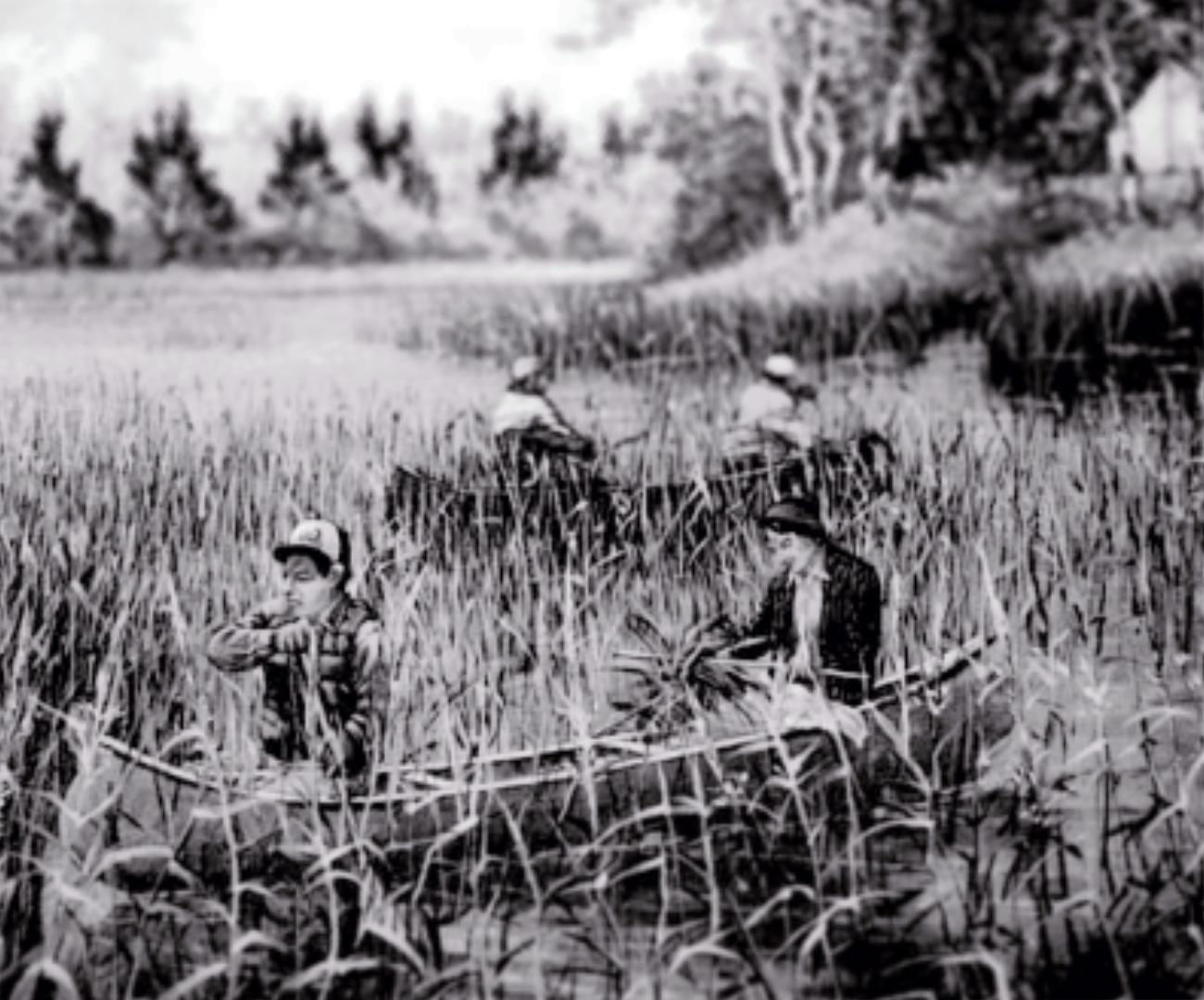
Wild Rice
Brooke McArthur
Food is Political
In line with Indigenous History Month and Wild Rice, I would like to say a quick word about food sovereignty battles in the area I grew up in. Rice Lake is a beautiful, quiet lake, and that made it quite attractive to first cottagers and now residents who have built homes along its water front. But for generations before that, Rice Lake and many of the other lakes in Kawartha Lakes region were home to thousands of acres of natively sown wild rice beds, a grain native to this area and a traditional food of the Ojibwe peoples who settled here thousands of years ago (Kawartha Lakes region and as far east as Manitoba was known as "the rice bowl of Canada").
When the cottagers and residents began 'settling' the lake, they wanted pristine beaches steps from their front doors for boating and swimming, and began to rip up and dredge the ancient rice beds from the lake shores, thus decimating a food source for the Indigenous peoples who would come every August-September to harvest the rice. The more cottages and homes that were built, the more the rice disappeared, and the more the traditional practices for these peoples were threatened. The increased fishing and motorcraft activity on the lake, thanks to Bewdley and its tourist restaurants, also began to harm the rice beds. Tensions began to climb between the cottagers and Indigenous communities, and would lead to confrontation between the cottagers on the shores and the Indigenous peoples in their canoes on the lake, trying to harvest the little bit of rice beds that remained, as well as to tend to them and try to get them to expand again. These confrontations began to make the news, and more stories like this began to come to light across the Kawartha Lakes region (i.e. Pigeon Lake, Curve Lake, etc). James Whetung of Curve Lake First Nation has been a wild rice activist for decades, sowing and re-cultivating damaged rice beds and protecting them against cottagers. Canadian Playwright Drew Hayden Taylor, also of Curve Lake Nation, wrote a play about these tensions called "Cottagers and Indians". For more information, click here.
Even though wild rice is now illegal to remove, dredge, or rip out, these tensions are still active today. I bring this to your attention in the hopes that we can all be a little more mindful about the ingredients that we use, their histories, and the other communities that also share these ingredients with us. Food is more than just food, it is also culture, identity, and a way of life.
For more information about Wild Rice, click here.
For a Good News article about the Wild Rice situation, click here.
Food Roots
Foraging Wild Rice- wild rice is an important traditional food for Indigenous First Nations peoples across Turtle Island (Canada) and has been for time immemorial. Traditionally, wild rice is harvested in August and September from the shores of shallow lakes. A harvesting party paddles up to the rice in the water and bends the long stalks into the bed of the canoe. Harvesting sticks are tapped against the heads of the wild rice stalks, gently knocking the grains into the canoe. Back at shore, the wild rice is dried, winnowed, and processed by various traditional methods for preservation or immediately eaten. Once dried, wild rice lasts in a cool, dry space for up to 3 years, making it a perfect storage food with lots of nutrients for the long winter and early spring months. Today, while many Indigenous people still harvest the traditional way, some now use swamp/air boats for harvesting as it is slightly quicker, does not damage the rice beds, and allows the harvesters to cover more ground, making wild rice harvesting more profitable in a Western sense.

For footage of traditional wild rice harvesting, watch:
For teachings about Wild Rice shared by Alderville First Nation Elder Jeff Beaver, watch:
For a documentary on wild rice harvesting tensions in the Kawartha Lakes region, click here.
For a conversation between James Whetung and Chef Shawn Adler on processing wild rice:
For a short interview with James Whetung:
James Whetung talking about harvesting wild rice:




